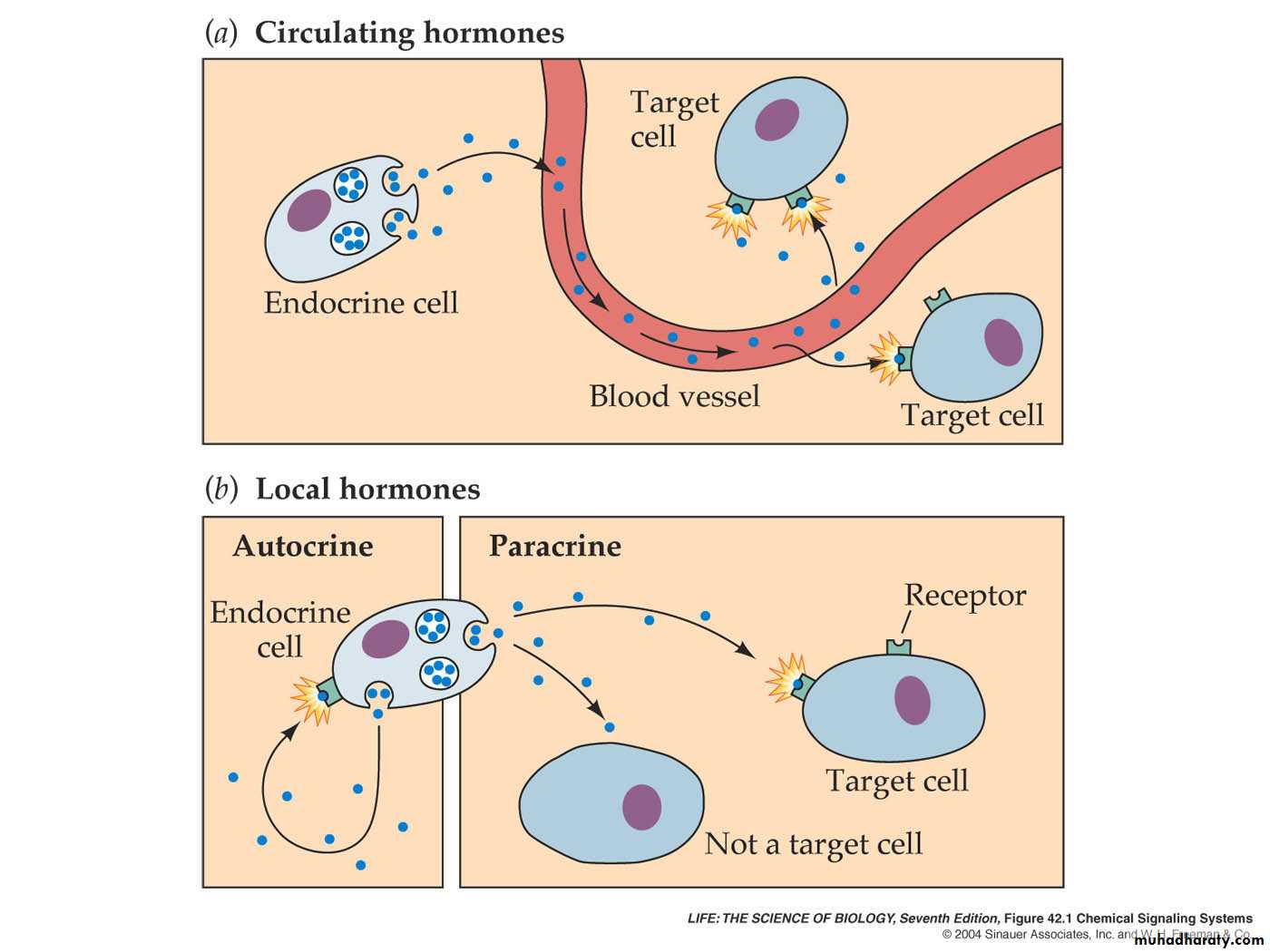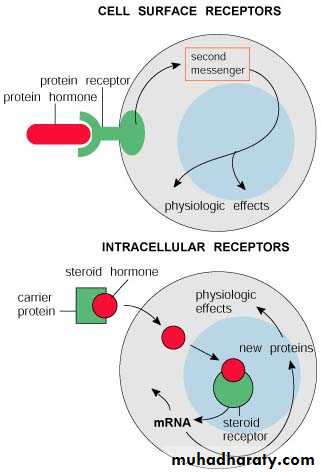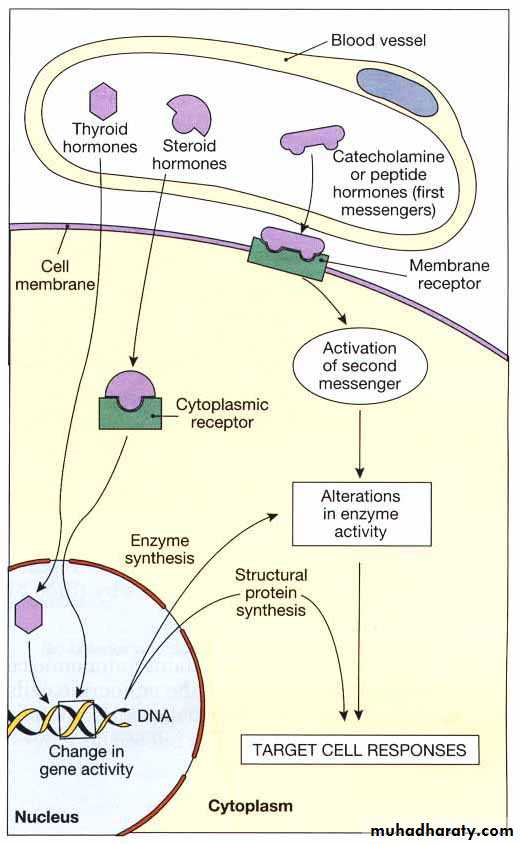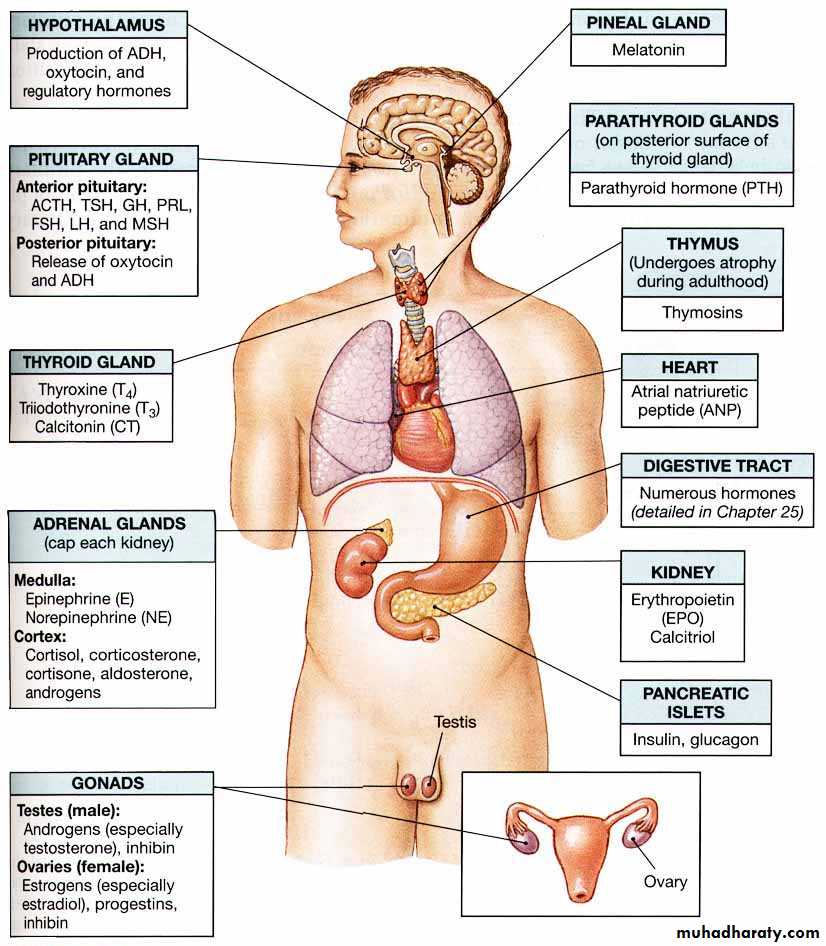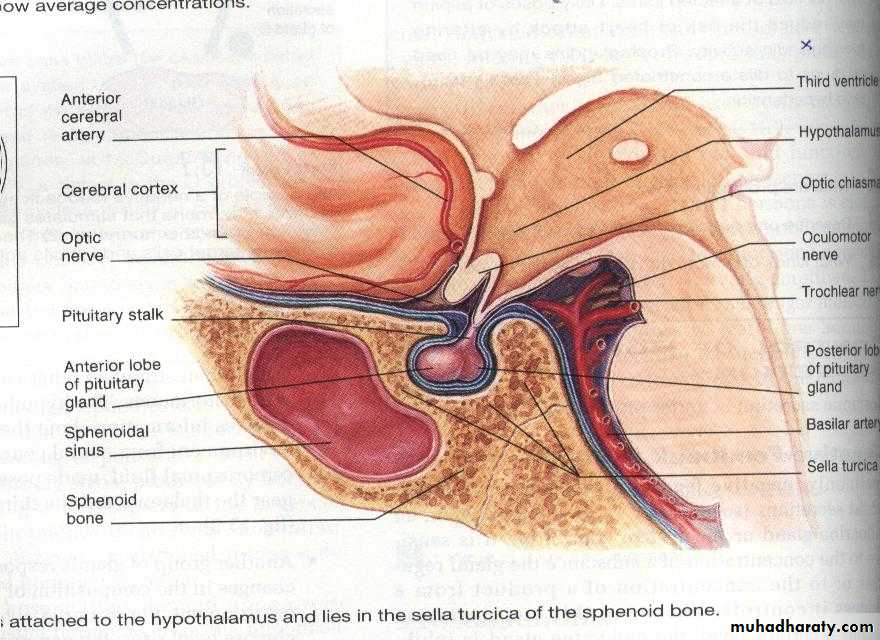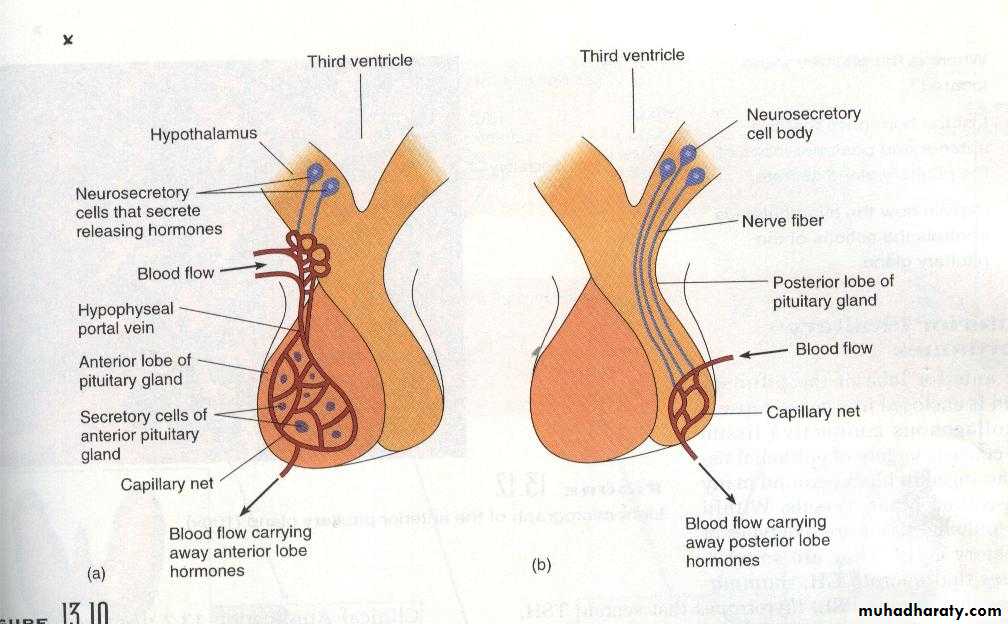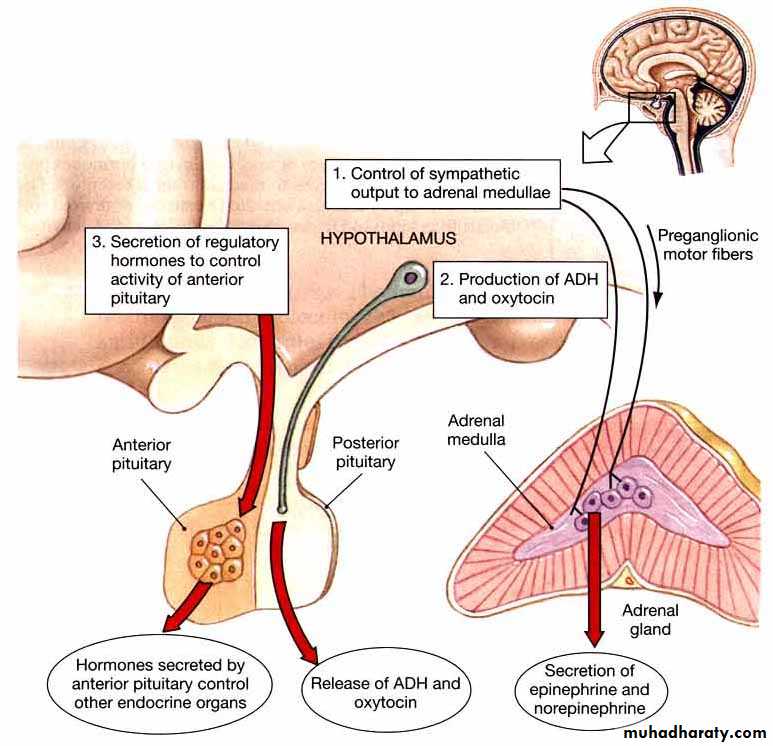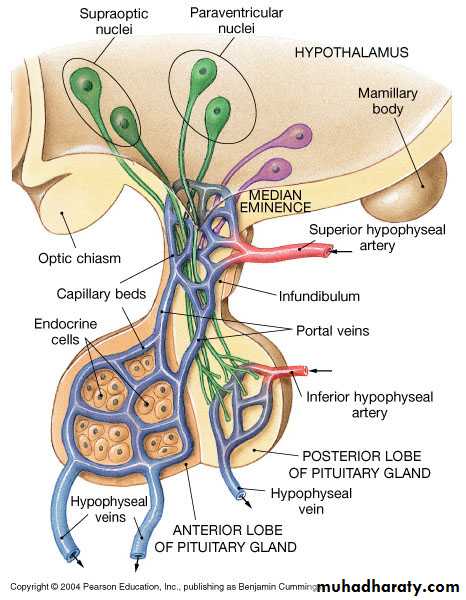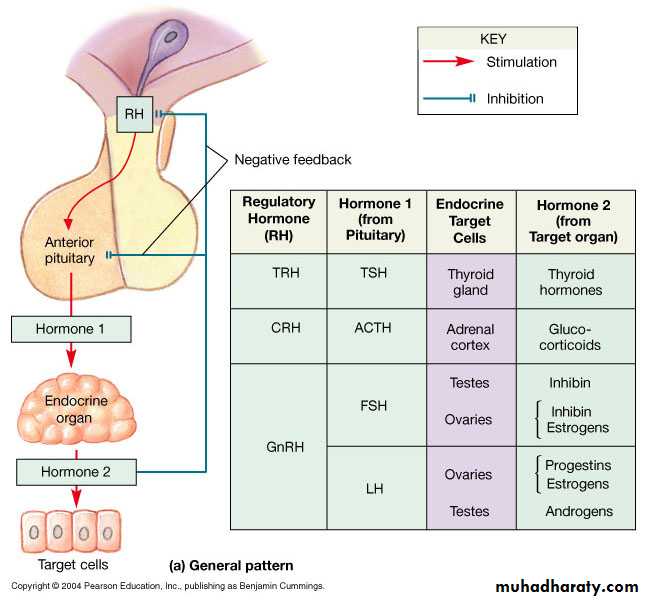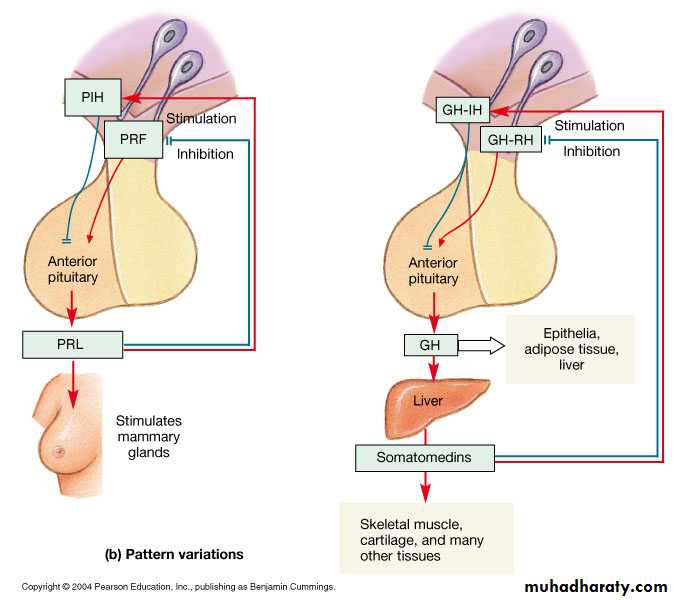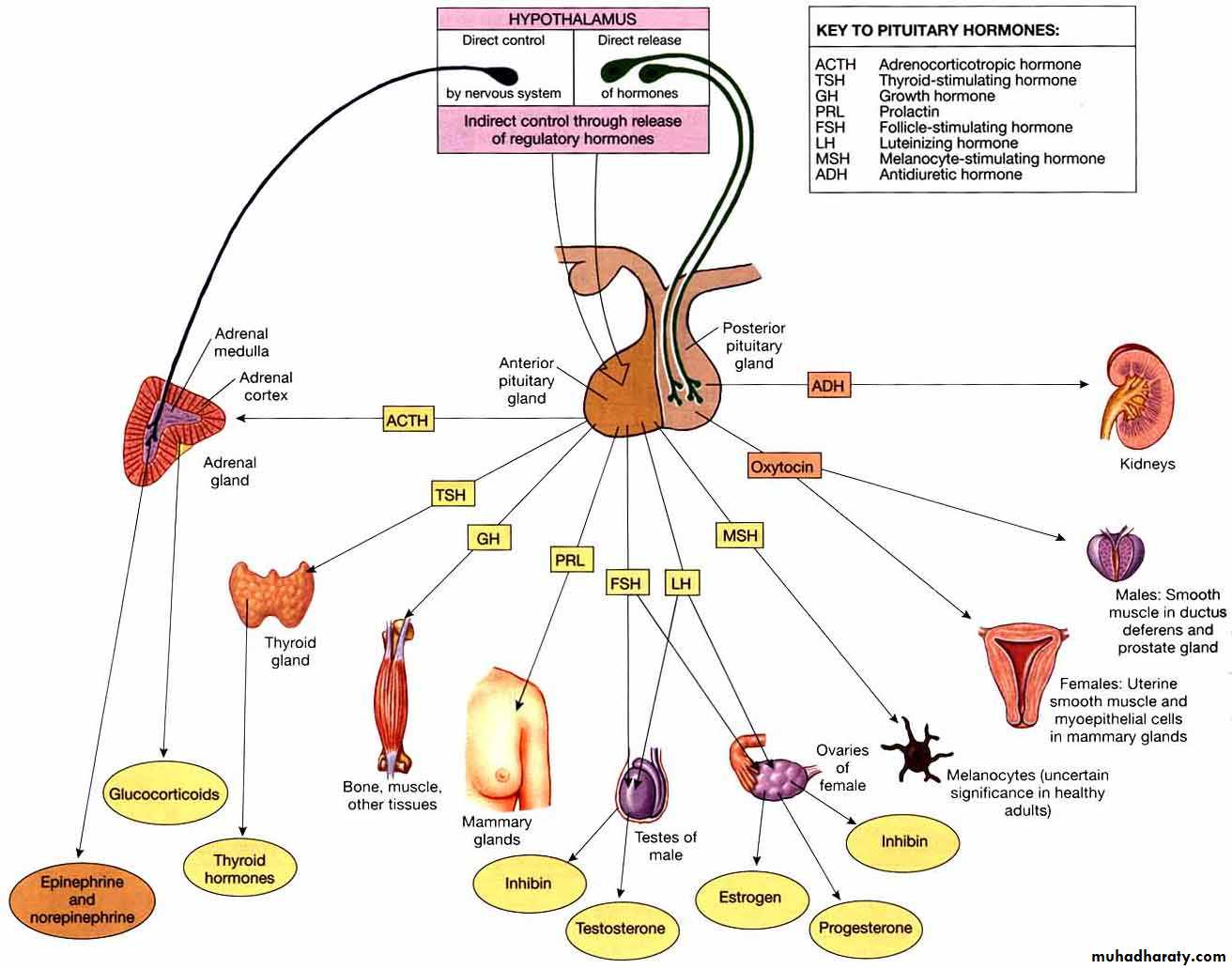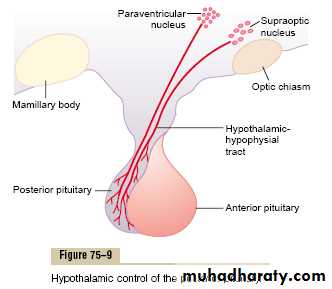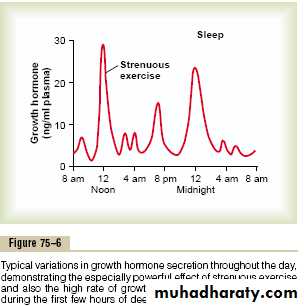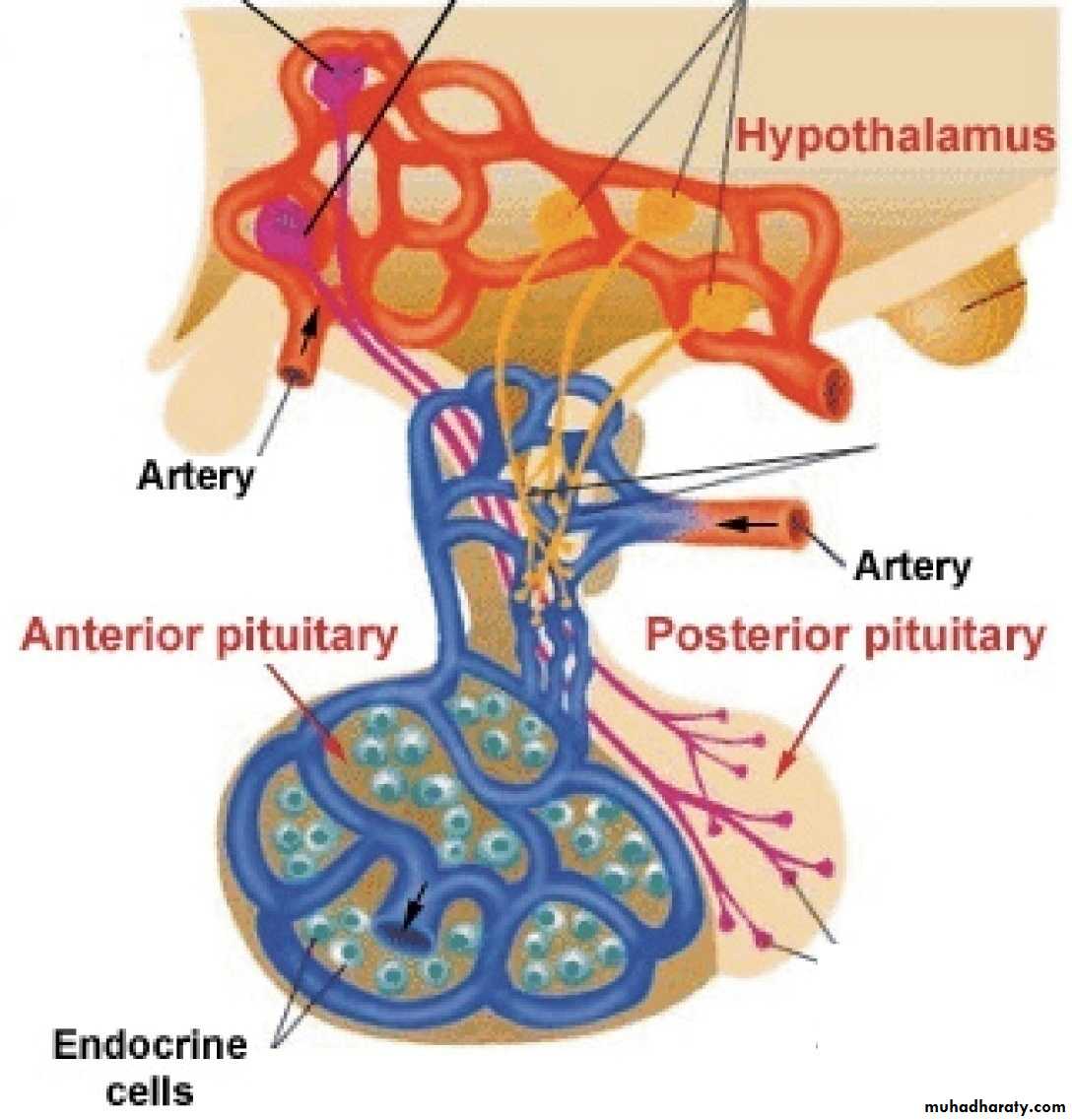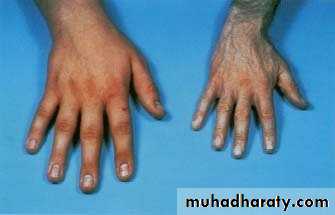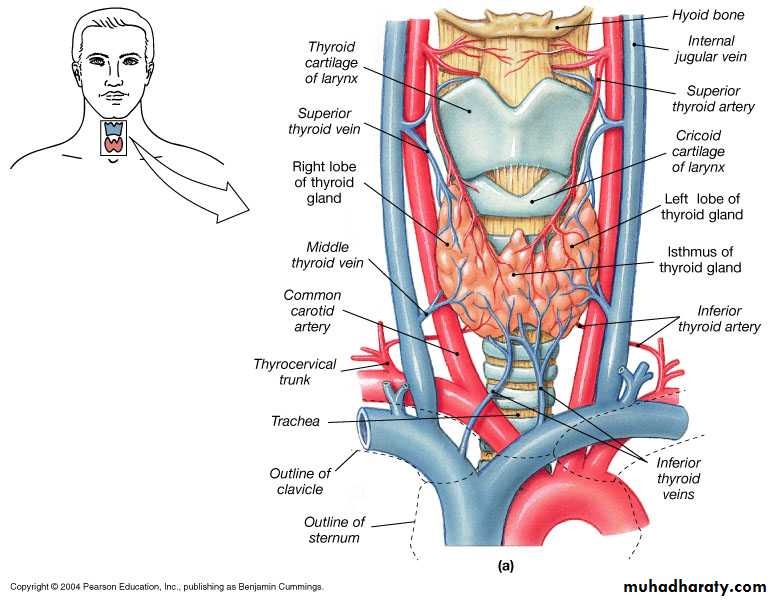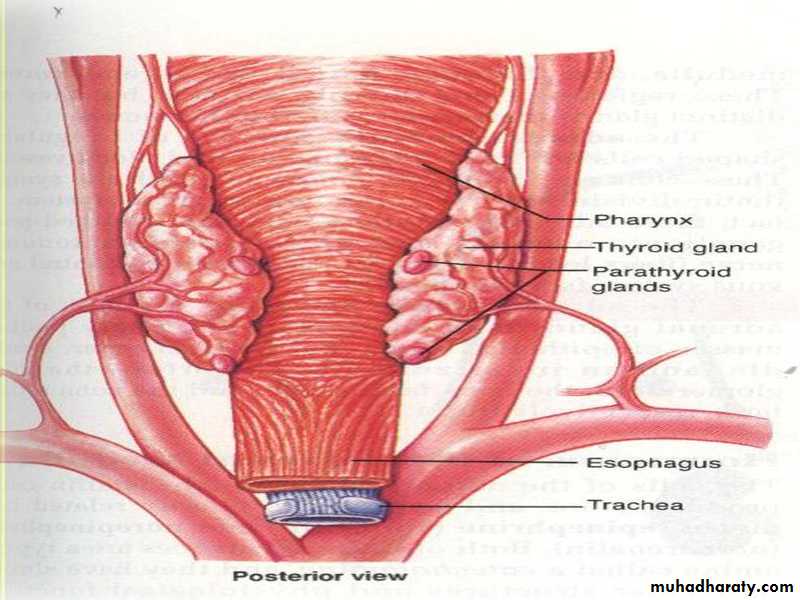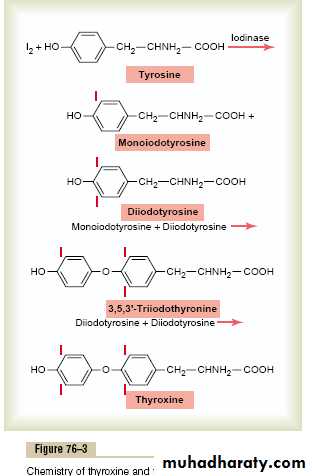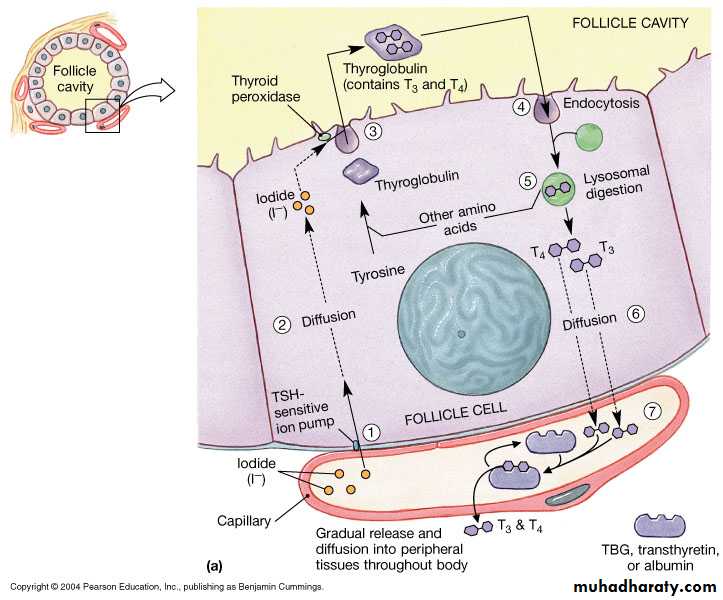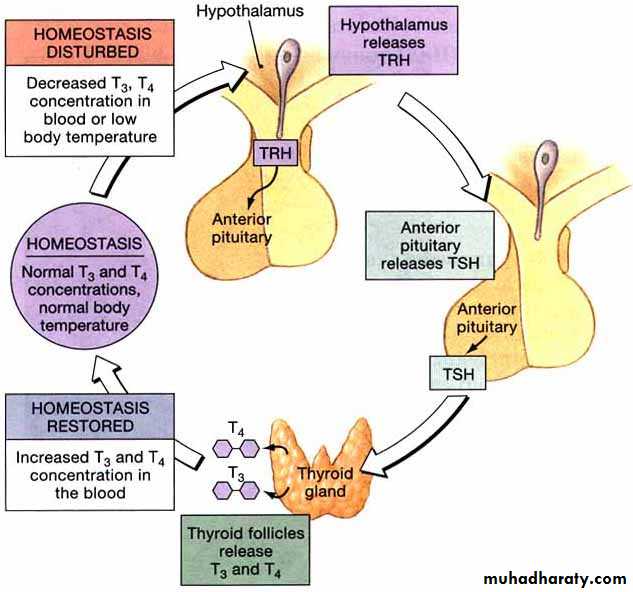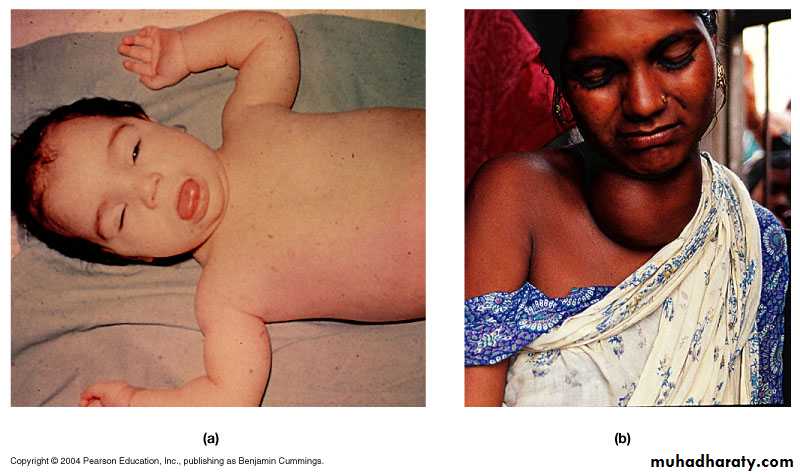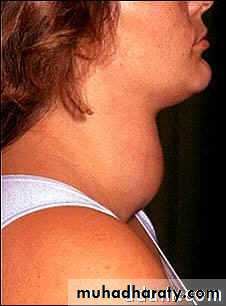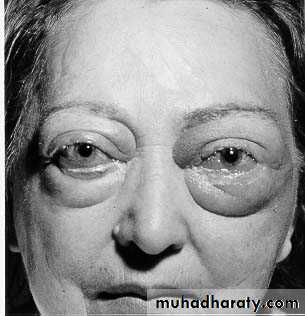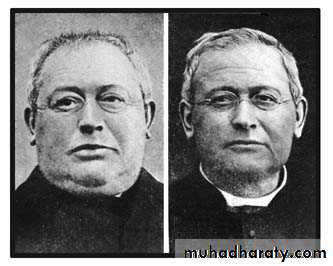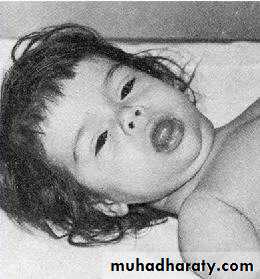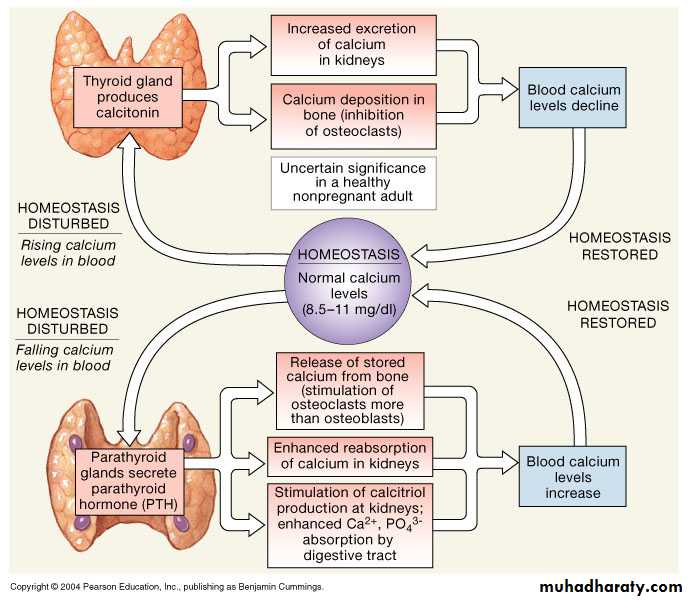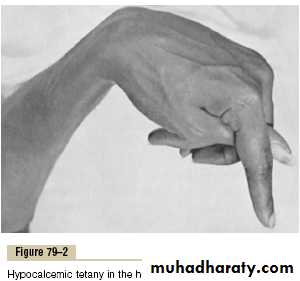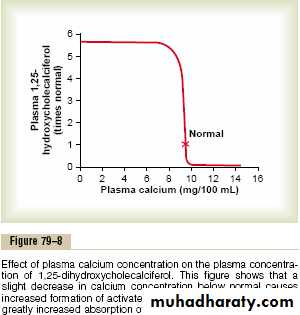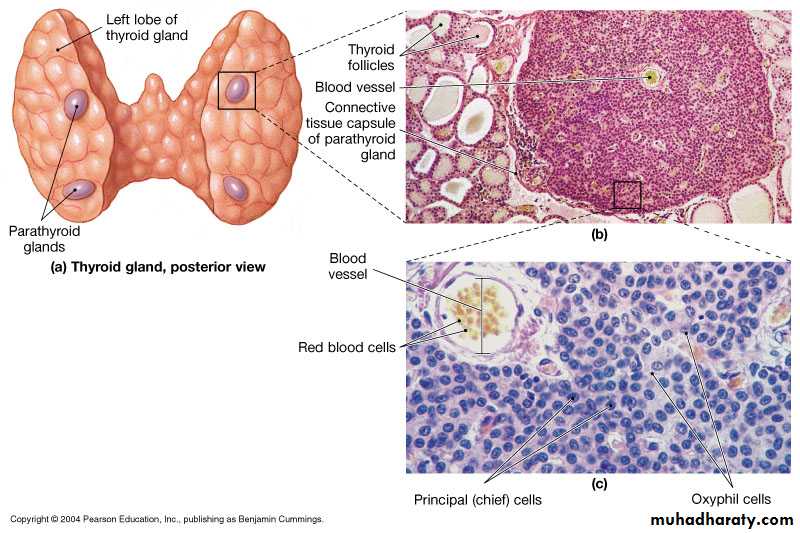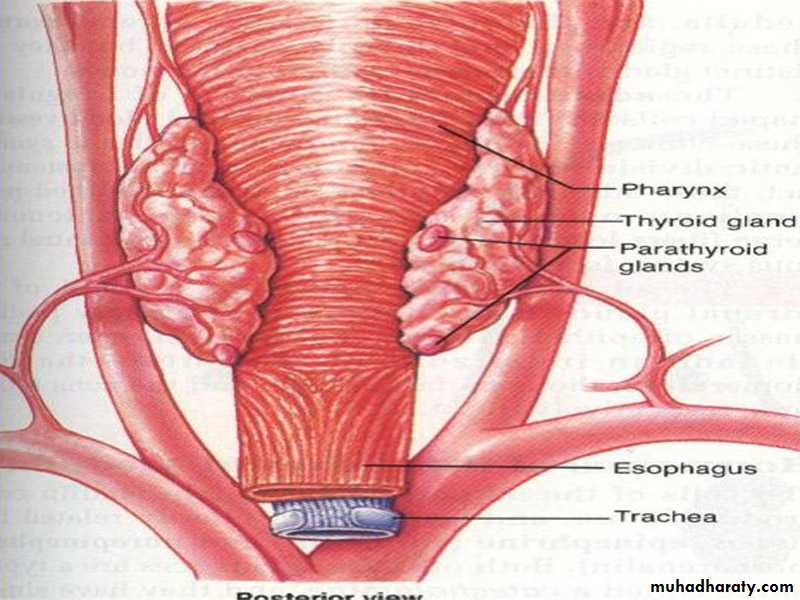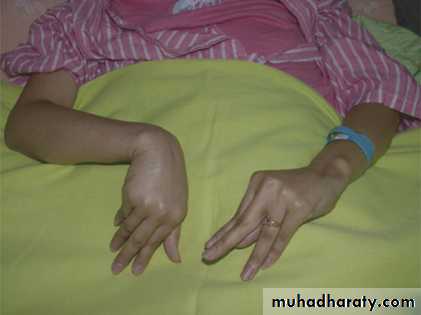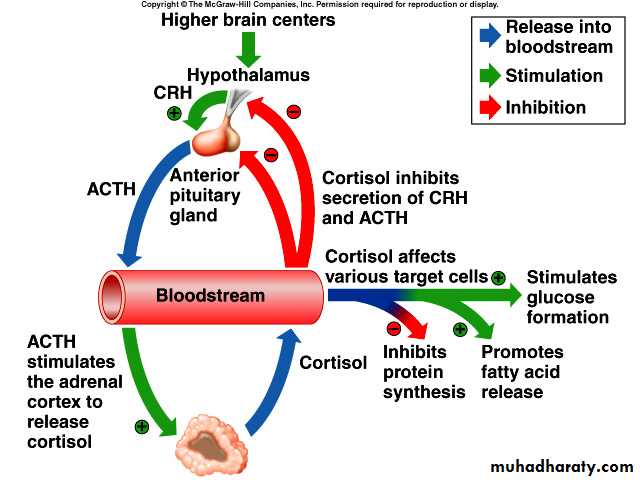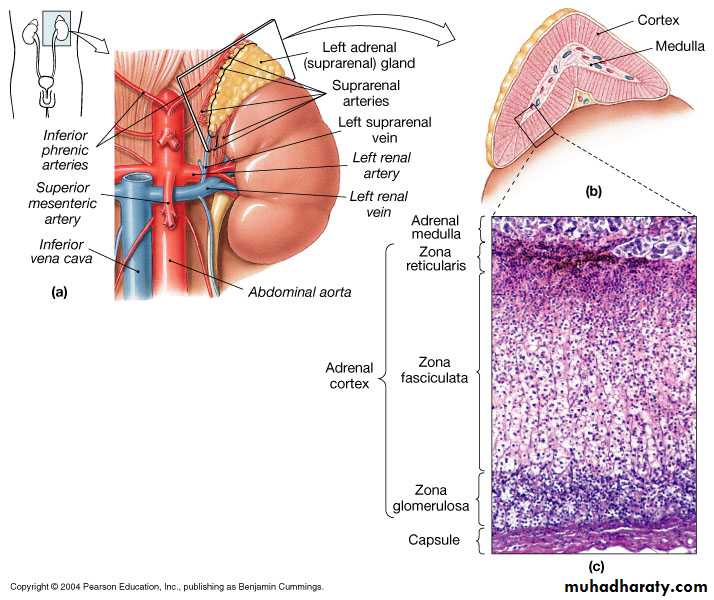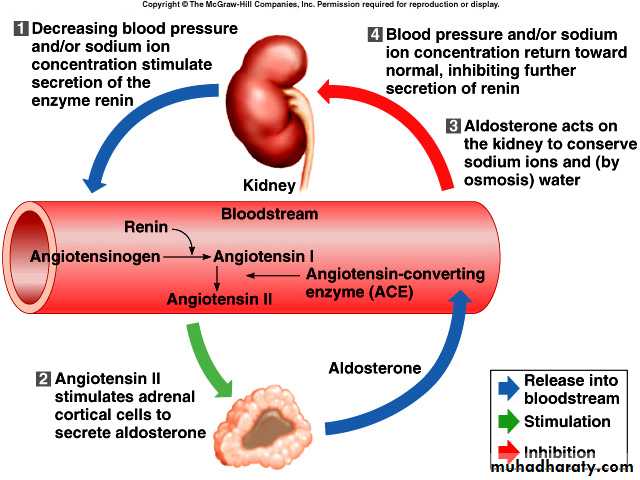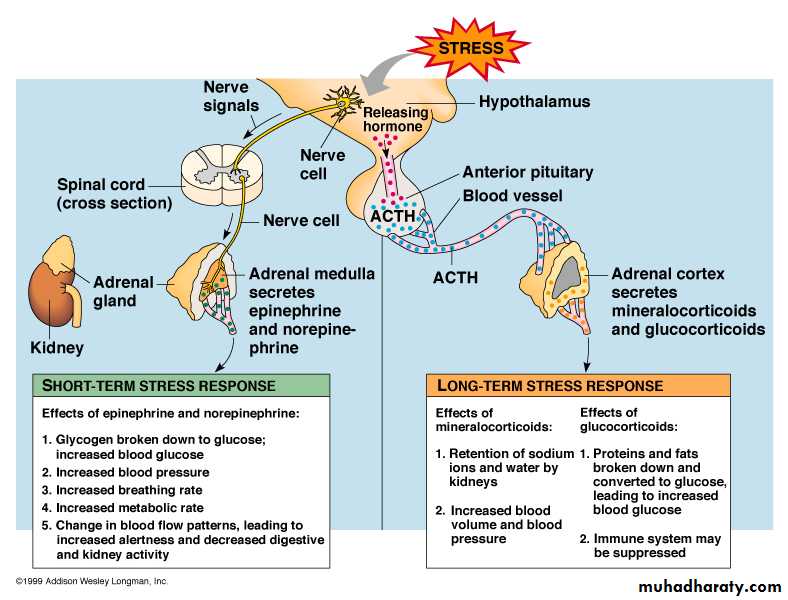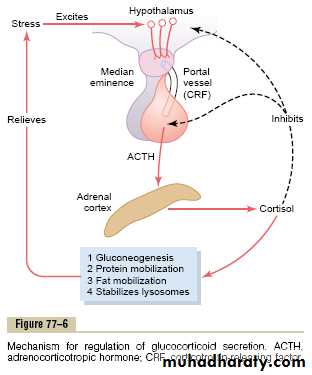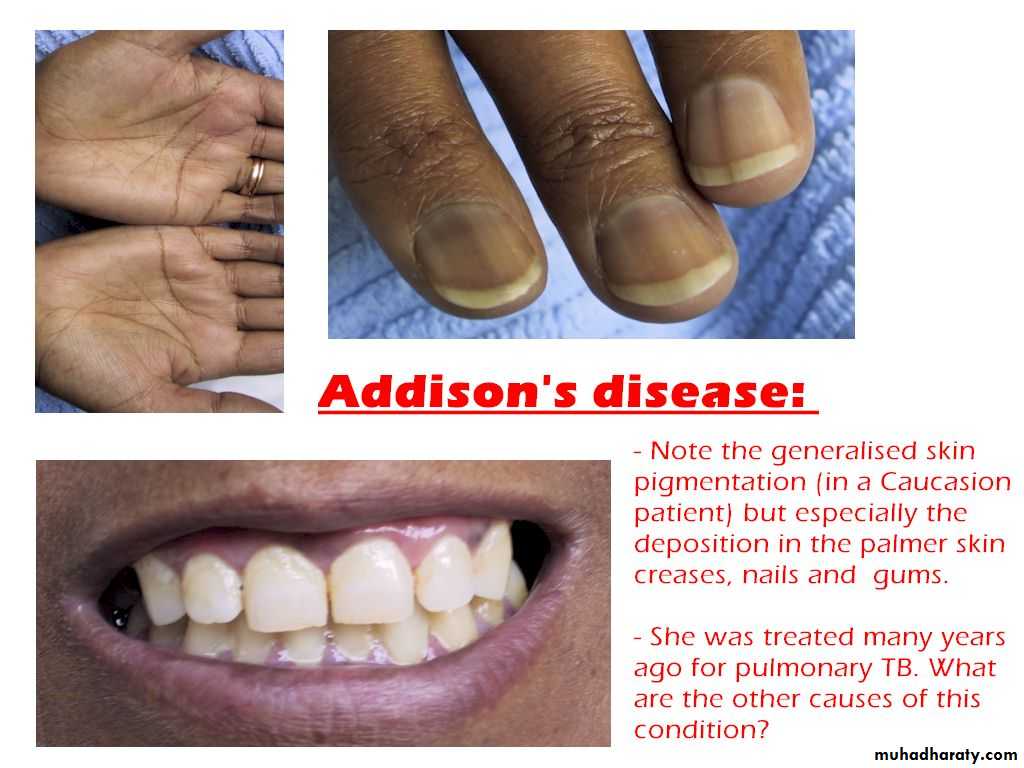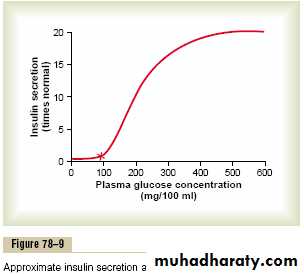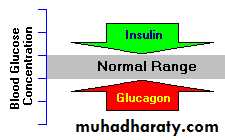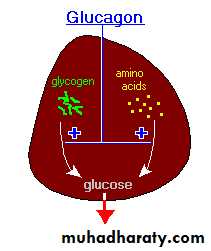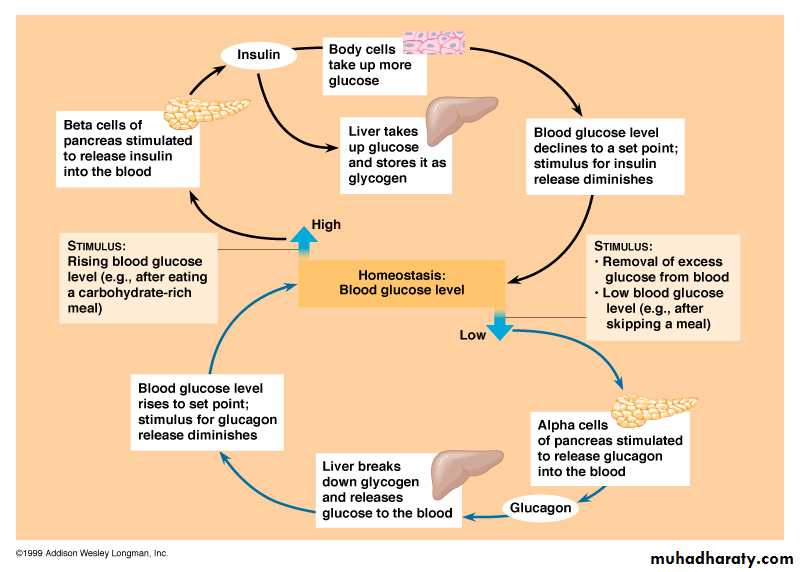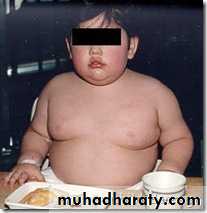Hypophyseal portal system
All blood entering the portal system will reach the intended target cells before returning to the general circulationFigure 18.8a
Figure 18.8 Feedback control of Endocrine SecretionFigure 18.8b
Figure 18.8 Feedback control of Endocrine SecretionThe Posterior Pituitary Gland
• Its also called the neurohypophysis or pars nervosa, contains the axones of some hypothalamic neurons. Neurons within the supraoptic & paraventricular nuclei manufacture :• Antidiuretic hormone (ADH) also called vasopressin
• - Oxytocin
Growth Hormone Action
Growth Hormone Action
Exercise, stress, sleep, low glucose(+)
GH Insensitivity (Laron dwarfism)
Somatomedin (IGF-1)
GHGhrelin GHRH Somatostatin
GigantismOver-secretion of growth hormone prior to puberty.
Excessive growth of long bonesTreatment: drug therapy to inhibit GH release
Acromegaly• Over-secretion of growth hormone during adulthood
• usually from tumor
• Enlargement of the extremities and/or face
• Treatment: drug therapy to inhibit GH release
Dwarfism
Under-production of growth hormone during childhood
Long bone growth is decreased
Body is proportioned and intelligence is normal
Treatment: early diagnosis & injections of GH for 5 or more yrs.
Lies near the thyroid cartilage of the larynx
Two lobes connected by an isthmusThe Thyroid Gland
Figure 18.12 The Thyroid Follicles
Figure 18.12aThyroid Disorders
Figure 18.13Grave’s disease
Severe form of hyperthyroidismMore common in women
Symptoms: strained and tense facial expression, exophthalmia, goiter, nervous irritability
goiter
exophthalmosProblems with the Thyroid Gland
Hypothyroidism in infant(cretinism) hyperthyroidism
Myxedema
Face becomes swollen, weight increases and memory begins to failTreatment is daily thyroid hormone
Follow-up tests to measure TSH blood levels are important
Cretinism
• Develops early in infancy or childhood
• Lack of mental/physical growth resulting in mental retardation and malformation• Sexual development and physical growth does not reach beyond 7-8 year old children
• Normal development cannot be completely restored w/ tx.
•
The calcium in the plasma is present in three forms :
1. About 41%( 1nmol / L) of calcium is combined with the plasma proteins .2. About 9% ( 0.2 nmol / L) is combined with an ionic substances ( citrate & phosphate ) .
3. 50 % is ionized .
Plasma Ca ion concentration is 2.4meq/ L
Figure 18.15
The Homeostatic Regulation of Calcium Ion Concentrationsthis pic. Shows carpopedal spasm .
Tetany occurs when the blood concentration of Ca falls from 9.4 mg / dl to about 6 mg / dl , which is only 35% below normal & is usually lethal at about 4 mg / dl .Vitamin D
Vitamin D3 ( cholecalciferol ) is found in the skin .
This is activated &converted to 25-hydroxycholecalciferol in the liver & this has a negative feedback effect on the conversion reactions .
25-hydroxycholecalciferol in the proximal tubules of the kidneys is converted to 1, 25-dihydroxycholecalciferol .this is the most active form of vitamin D .this conversion requires PTH .
This demonstrates that plasma concentration of 1, 25-dihydroxycholecalciferol is inversely affected by the concentration of calcium in the plasma.
Figure 18.14 The Parathyroid Glands
Figure 18.14Parathyroid hormone
Normally there are 4 parathyroid glands in humans , they are located immediately behind the thyroid gland and behind each of the upper &each of the lower poles of the thyroid.The parathyroid gland contains mainly chief cells which secret PTH .PTH is a polypeptide with 84 amino acids .
Effect of PTH on calcium & phosphate concentration in ECF
1. PTH increases calcium &phosphate absorption from the bone .2. It decrease the excretion of the calcium by the kidney .
3. It increases renal phosphate excretion .
Disease of Parathyroid
HyperparathyroidismOver-activity of parathyroid resulting in increased calcium in the blood
Leads of kidney stones, GI disturbances
Bones become weak, deformed and fracture easily because calcium is drawn from the bone
Hypoparathyroidism
Under-activity of parathyroid gland causing a low level of calcium in blood
Tetany, hyperirritability of nervous system, twitching
Death can occur if the larynx and respiratory muscles are involved.
The Adrenal Gland
Figure 18.16Synthesis and secretion of the adrenocortical hormones
The adrenal cortex has 3 distinct layers .Regulation of cortisol secretion by ACTH from the anterior pituitary
ACTH is a large polypeptide , has 39 amino acids .it is controlled by Corticotropin –releasing factor ( CRF) from the hypothalamus .ACTH act on adrenocortical cells to produce steroids ,
Stress stimuli activate the entire control system to cause rapid release of cortisol & the cortisol in turn initiates a series of metabolic effects .there is direct feedback of the cortisol to both the hypothalamus & the anterior pituitary to decrease the concentration of cortisol in plasma .The secretory rate of CRF, ACTH & cortisol are high in early morning but low in the late evening .
Disease of Adrenal glands
Addison’s diseaseDecreased function of adrenal cortex
Excessive pigmentation, low blood pressure when standing, muscular weakness/fatigue, diarrhea, wt. loss, vomiting
Tx. Replace
hormone
Cushing’s syndrome
Hypersecretion of glucocorticoids
Causes hyperglycemia, hypertension, poor wound healing, bruising, “moon” face and obesity
Summary of Blood Glucose Regulation
In normal person , the blood glucose concentration between 80 -90 mg / dl in the fasting person .This concentration increases to 120-140 mg / dl during the first hour after meal , but the feedback system of glucose return the glucose concentration rapidly to the control level .
Conversely , in starvation , the gluconeogenesis function of the liver provides glucose to F.B.S.
Glucagon
Glucagon has a major role in maintaining normal concentrations of glucose in blood, and is often described as having the opposite effect of insulin. That is, glucagon has the effect of increasing blood glucose levels.Glucagon is a linear peptide of 29 amino acids. Glucagon is synthesized as proglucagon and proteolytically processed to yield glucagon within alpha cells of the pancreatic islets.
Effect of glucagon on glucose metabolism
• The major effects of glucagon on glucose metabolism are:-• Breakdown of liver glycogen ( glycogenolysis ).
• Increased gluconeogenesis in the liver .
• Both of these effects enhance the availability of glucose to the other organs of the body .
•
Ghrelin
Disrupted ghrelin circadian rythmn in obesePromotes lung growth and development in the fetus
Prader-Willi Syndrome characterized by high fasting levels
Can be severely affected by gastric bypass surgery
Obestatin is a converse hormone generated by differential splicing of ghrelin precursor
Anti-obesity vaccine?

